Which countries have the most and least press freedom?
A disturbing new report underlines scale of attack on independent media across the globe
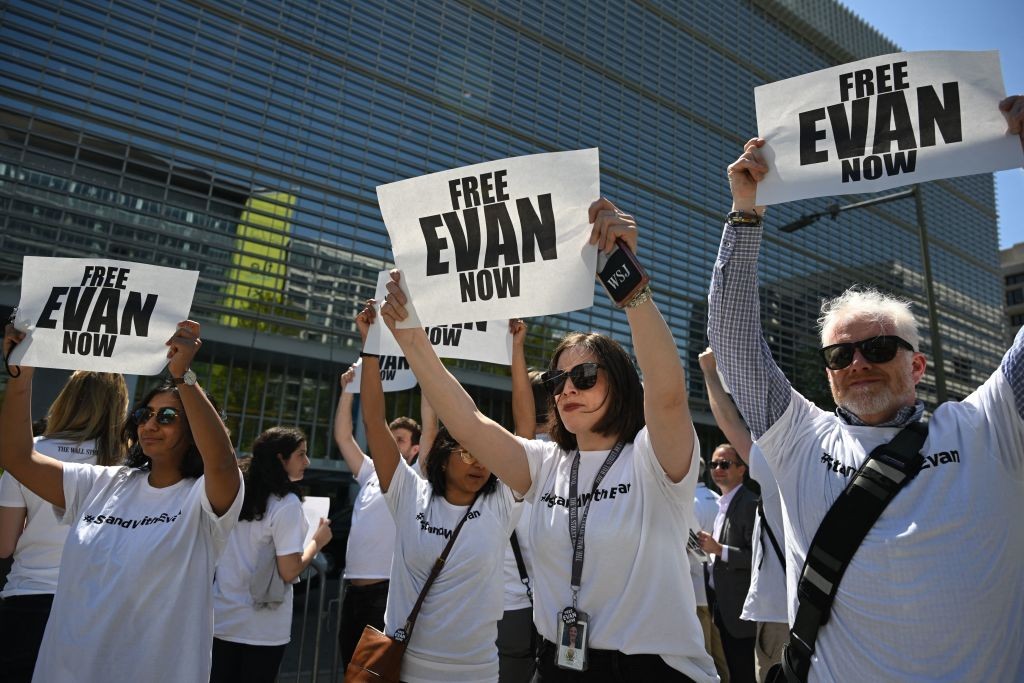
A free daily email with the biggest news stories of the day – and the best features from TheWeek.com
You are now subscribed
Your newsletter sign-up was successful
Freedom of the press is under attack in “every corner of the globe”, UN Secretary-General Antonio Guterres has declared in a speech to mark World Press Freedom Day.
According to Reporters Without Borders, which analyses press freedom in 180 countries and territories as part of its annual World Press Freedom Index, the situation is “very serious” in 31 countries, “difficult” in 42, “problematic” in 55, and “good” or “satisfactory” in 52 countries. The environment for journalism is “bad” in seven out of ten countries, and satisfactory in only three out of ten.
In 2022, 55 journalists and four media workers were killed in the line of duty. This year’s winners of the Unesco World Press Freedom Prize are three Iranian women, two journalists and a human rights activist – “all of whom have been jailed”, noted France 24.
The Week
Escape your echo chamber. Get the facts behind the news, plus analysis from multiple perspectives.

Sign up for The Week's Free Newsletters
From our morning news briefing to a weekly Good News Newsletter, get the best of The Week delivered directly to your inbox.
From our morning news briefing to a weekly Good News Newsletter, get the best of The Week delivered directly to your inbox.
Which countries rank highest?
Norway came first for the seventh year in a row. This is due to its robust legal framework for safeguarding freedom of the press, the index noted, as well as its “vibrant” media market, strong public service broadcaster and plethora of private publishing companies which guarantee extensive editorial independence.
Ireland moved up four places to second place. Despite concerns over the future funding of the media, the report noted the abolition of blasphemy by referendum in 2018, which took effect in 2020, calling it “a welcome step forward”, for decriminalising the publication of “blasphemous, seditious, or indecent matter” and abolishing the offence of defamation of any religion.
Denmark dropped one place to third, with the report commending a rising interest in traditional investigative journalism, especially in subjects related to healthcare, during the coronavirus crisis.
Which countries rank lowest?
The last three places were all occupied by Asian countries. Vietnam sits in 178th place, a country where all the media follow strict orders from the Communist Party, which has been in power since 1975. The army has developed Force 47, “a unit with 10,000 cyber-soldiers who are tasked with defending the party line and attacking all online dissidents”, said the report. Around 40 journalists are currently held in Vietnam’s prisons.
A free daily email with the biggest news stories of the day – and the best features from TheWeek.com
China, which has fallen four places to 179th, “is the world’s largest prison for journalists” said the report, while major Chinese media groups are state-owned and directly controlled by the authorities. Independent journalists and bloggers who dare to report “sensitive” information are often placed under surveillance, harassed, detained, and, in some cases, tortured. The country is one of the biggest exporters of propaganda content.
The report is highly critical of North Korea, which is in last place, and is one of the world’s most authoritarian regimes. The Korean Central News Agency (KCNA) is the only permitted news source for North Korea’s media and the government’s mouthpiece. “As a result of the regime’s desire for complete isolation from the world, journalists have been arrested, deported, sent to forced labour camps, and killed for deviating from the party’s narrative,” concluded the report.
Where does the UK rank?
The UK ranked 26th this year, a slight decline from 24th last year. But it is an improvement on previous years, when the country came in at 33rd in 2021 and 35th in 2020.
The British media landscape continues to suffer from a lack of pluralism, the report said, with just three companies – News UK, Reach, and Daily Mail and General Trust – dominating the national newspaper market.
The report criticised the arrest of journalists covering protests, calling it “a chilling development”. The home secretary’s approval of a US request to extradite Julian Assange was described as “a further source of alarm”, and in Northern Ireland, despite the 1998 peace agreement, journalists covering organised crime and paramilitary activities remain at risk.
Why is press freedom declining around the globe?
Christophe Deloire, RSF Secretary-General, said that this year’s index was characterised by extreme volatility and “major falls and unprecedented changes”. Deloire highlighted the “growth in the fake content industry”, artificial intelligence and continuing financial pressures as key reasons for the decline. The report also makes a “brief mention of mercurial tech baron Elon Musk”, said the Press Gazette, saying that he is “pushing an arbitrary, payment-based approach to information to the extreme, showing that platforms are quicksand for journalism”.
Propaganda is on the rise in several countries. “Consider Russia. Even as Mr Putin is failing in his war on Ukraine, he is succeeding in mythmaking at home,” said The Economist. Russia fell nine places to 164th place in the index. Russian state media “slavishly parrots the Kremlin line while opposition outlets are driven into exile”, The Guardian said. Last month, Moscow arrested The Wall Street Journal reporter Evan Gershkovich, the first US journalist detained in Russia on espionage charges since the end of the Cold War.
The Covid-19 pandemic and financial pressures played a part in the decline of the global free press. New rules in countries such as Bolivia, Russia and the Philippines punish the spread of “false information” about the virus with jail time, said The Economist, while even in the UK, many outlets have been forced to close their newsrooms or drastically reduce the number of staff, according to the report.
Felicity Capon is senior editor of The Week Junior, where she oversees the magazine’s international news section. She was the title’s editor for several years, during which she was shortlisted for the BSME Fiona Macpherson Best New Editor award. She also appeared on The Emma Barnett Show on Radio 5 Live, The Sarah Brett Show and the Media Masters podcast. She is a regular contributor to The Week Unwrapped podcast, and has written for The Week, The New Statesman, The Times, The Telegraph and Newsweek.
-
 ‘Poor time management isn’t just an inconvenience’
‘Poor time management isn’t just an inconvenience’Instant Opinion Opinion, comment and editorials of the day
-
 Bad Bunny’s Super Bowl: A win for unity
Bad Bunny’s Super Bowl: A win for unityFeature The global superstar's halftime show was a celebration for everyone to enjoy
-
 Book reviews: ‘Bonfire of the Murdochs’ and ‘The Typewriter and the Guillotine’
Book reviews: ‘Bonfire of the Murdochs’ and ‘The Typewriter and the Guillotine’Feature New insights into the Murdoch family’s turmoil and a renowned journalist’s time in pre-World War II Paris
-
 Why X could face UK ban over Grok deepfake nudes
Why X could face UK ban over Grok deepfake nudesThe Explainer Ofcom is investigating whether Elon Musk’s AI chatbot breached Online Safety Act
-
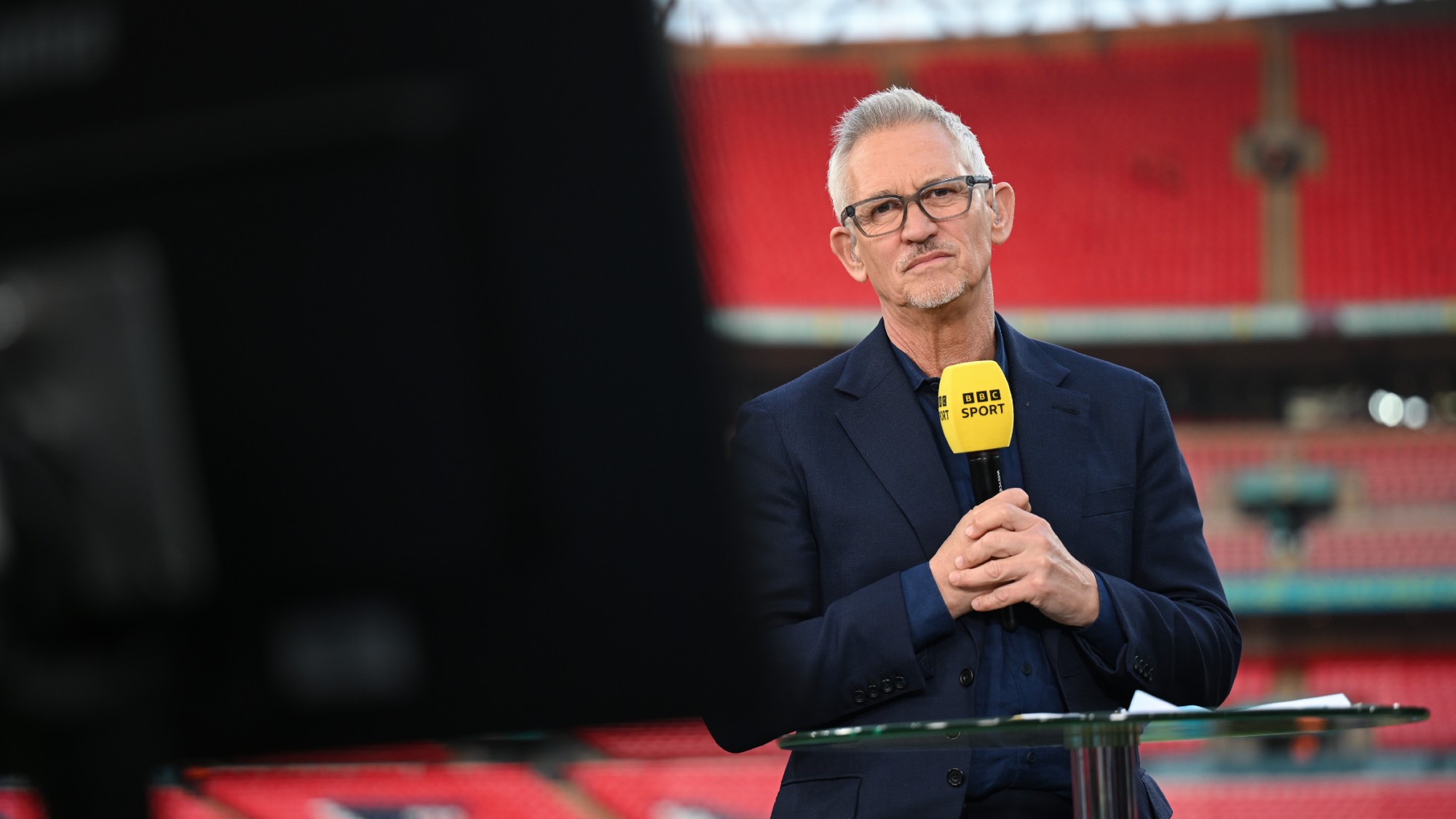 What are the impartiality rules for BBC presenters?
What are the impartiality rules for BBC presenters?The Explainer News presenters and hosts of 'flagship programmes' must adhere to tougher guidelines than other staff and freelancers
-
 Facebook: Sarah Wynn-Williams' shocking exposé
Facebook: Sarah Wynn-Williams' shocking exposéTalking Point Former executive's tell-all memoir of life behind the scenes at Meta 'makes for damning reading'
-
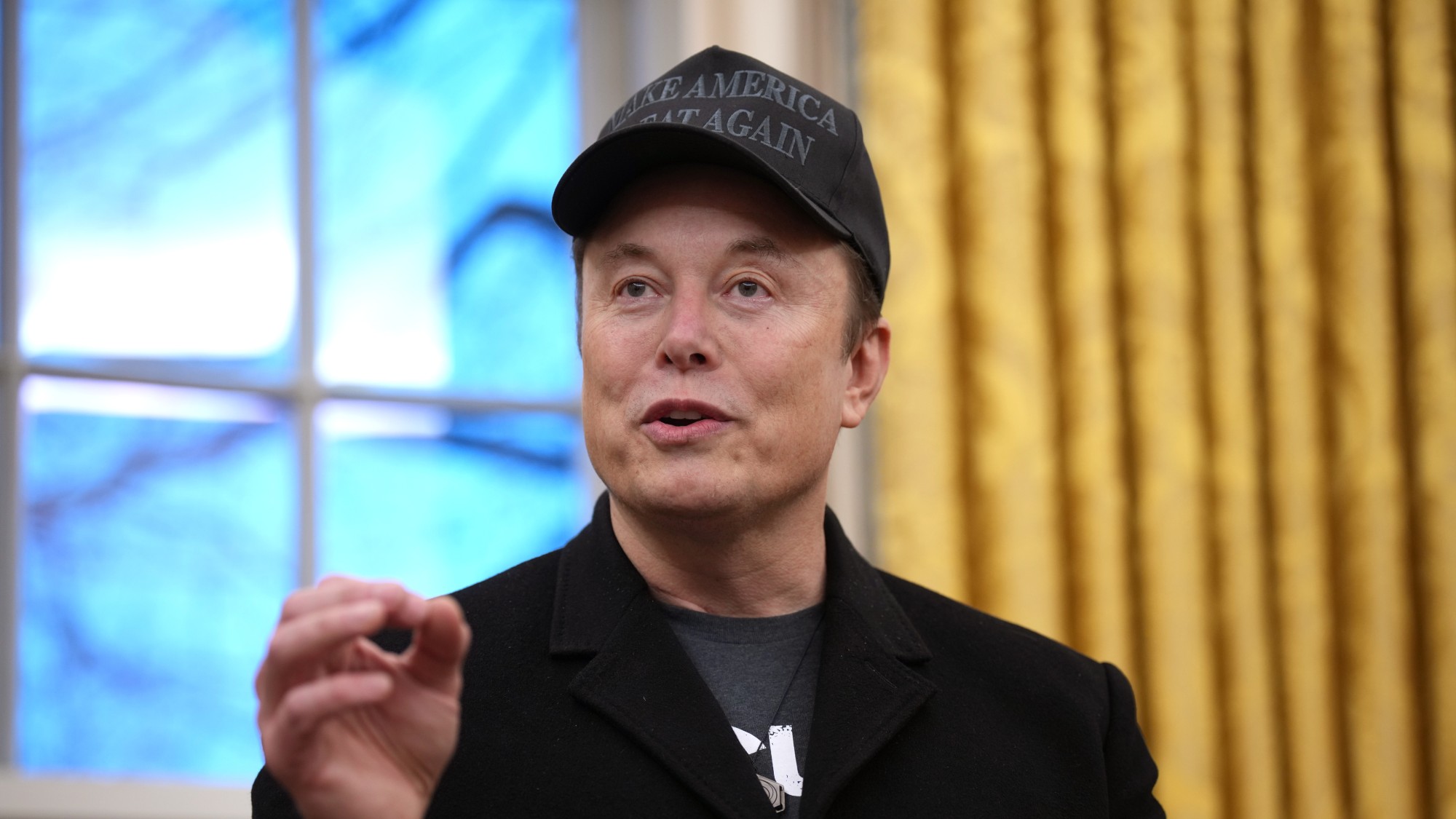 Elon Musk and Wikipedia are feuding
Elon Musk and Wikipedia are feudingThe Explainer The online encyclopedia stands accused of being far-left propaganda
-
 What is the dead internet theory?
What is the dead internet theory?The Explainer Reality has 'begun to mirror' the conspiracy that the vast majority of internet activity is generated by bots
-
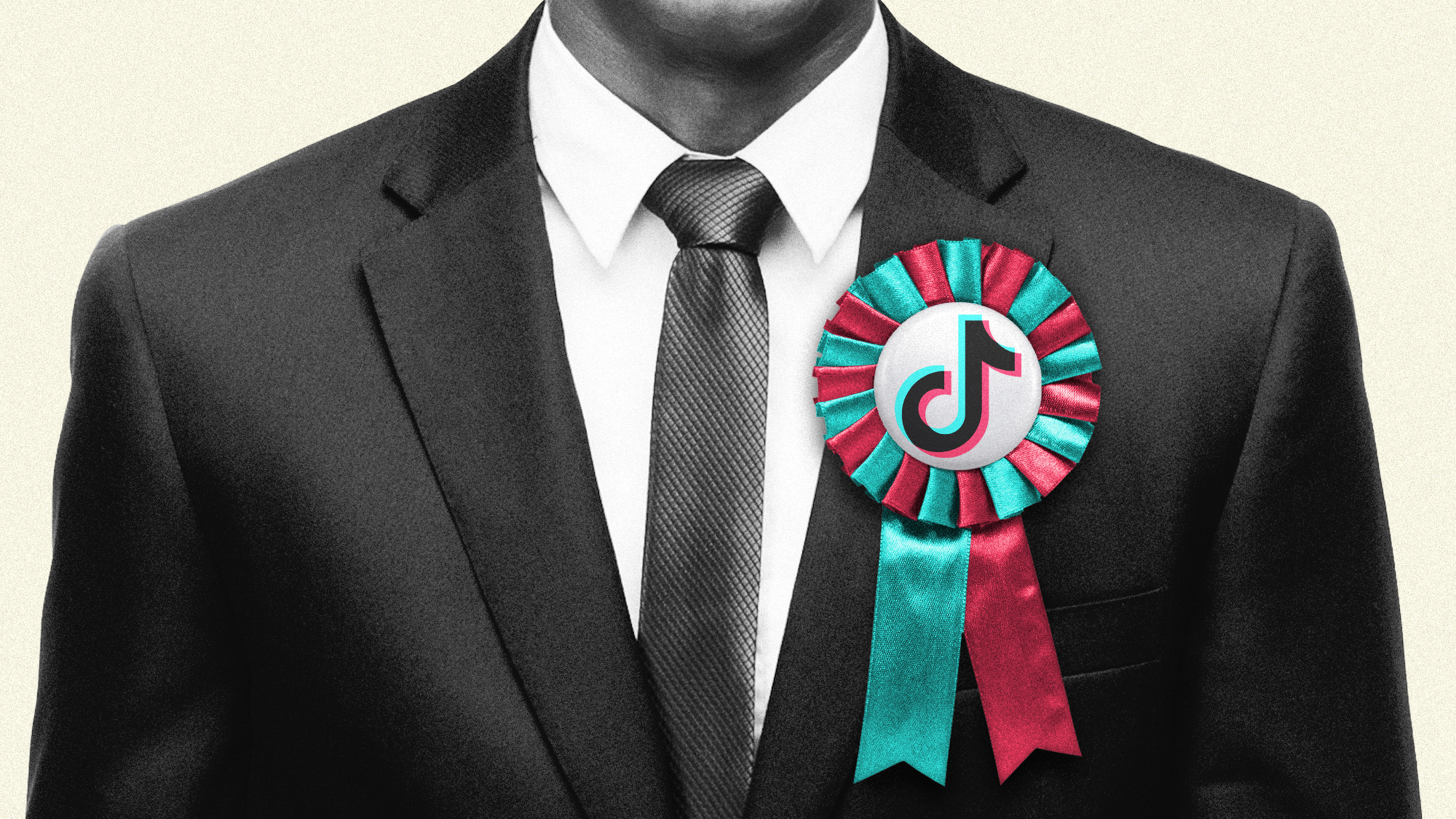 The UK's first TikTok election
The UK's first TikTok electionThe Explainer Labour and Conservatives launch on the video-sharing app deemed so valuable by US Democrats in reaching young voters
-
 Substack's moderation crisis: the revolt over 'Nazi newsletters'
Substack's moderation crisis: the revolt over 'Nazi newsletters'Talking Points Platform facing 'greatest crisis in its short history' amid writer exodus over hate speech vs. free speech debate
-
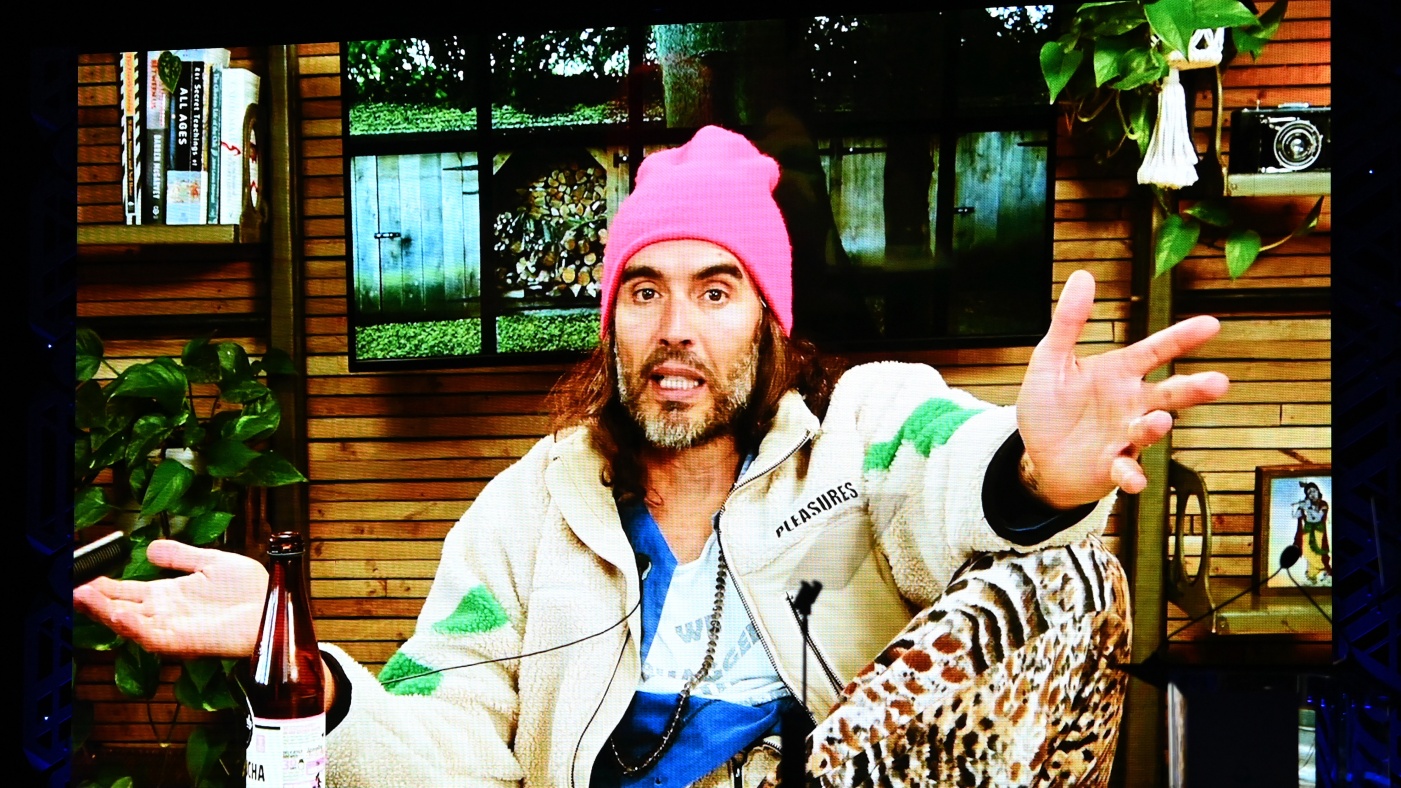 How Russell Brand built up his online following
How Russell Brand built up his online followingThe Explainer The former comedian has tens of millions of followers across his social media platforms